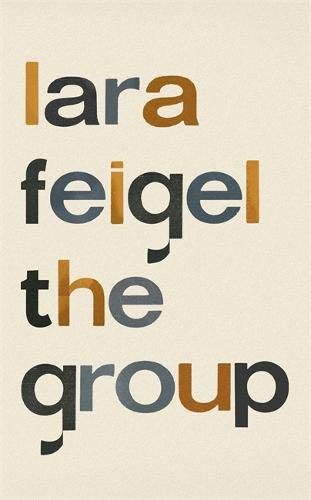
The Group
John Murray, June 2020
Buy in the UK Buy in the USA very funny and brilliant book. Feigel does a thorough and virtuosic job of describing the dilemmas of contemporary middle-class women — Rachel Cusk
An elegant, vivid, fascinating novel, with a profound vision of these lives and this moment in our culture. Pure pleasure — Tessa Hadley
Lara Feigel’s first novel, The Group, is a fiercely intelligent, revealing novel about a group of female friends turning forty. Who has children and who doesn’t? Whose marriages are working, whose aren’t, and who has embarked on completely different models of sexuality and relationships? Who has managed to fulfil their promise, whose life has foundered and what do they think about it, either way?
The Group takes its cue from Mary McCarthy’s frank, absorbing novel about a group of female graduates. The relations between men and women may be different now but, in the age of Me Too, they’re equally fraught. This is an engrossing portrait of contemporary female life and friendship, and a thrillingly intimate and acute take on female character in an age that may or may not have been changed by feminism in its different strands.
From the reviews:
‘Feigel, an academic who has written a number of nonfiction books, transplants McCarthy’s set from Roosevelt’s New Deal America to post-Brexit Britain. It’s a bit like Sex and the City as rewritten by Rachel Cusk… soon we realise just how loaded their friendships are. There are painful reckonings about unfaithful husbands and the ways in which the women have been complicit with a culture of male entitlement… The Group works because there is nothing self-satisfied in its tone. It has the bitter aroma of Elena Ferrante’s fiction in its interest in female friendship and female anger. The influence of Virginia Woolf isn’t hard to detect either, in Feigel’s attentiveness to the moment-to-moment shift of impressions and the fragility of the self: where does one person end and another begin? The mix of caustic insights and sudden tenderness make the group dynamics arrestingly real. I can’t remember the last time I consumed a novel so hungrily. Like Polly’s slap, it leaves a sting.’ Johanna Corr-Thomas, The Observer
‘Unlike the original, however, this novel is constantly turning back on itself, aware and critical of the limitations of point of view and knowingly stuck with those limitations. There is no claim to universality, no sense that these women’s shared assumptions are the only or best ones available; rather, they precisely expose one of a multitude of specificities that can be playfully and painfully investigated in fiction… Feigel shows all this to attentive readers in a novel playing with its own fictitiousness: of course Stella can’t know what happens when she is not there; it does not really matter if you confuse Helena and Kay. “We characterise ourselves,” says Stella, “‘like characters in novels … we’d look almost identical to most onlookers in our wealth, our privilege and our freedom of choice … Yet we insist on each other’s otherness … because our sameness disturbs us even more.” This is a daringly heavy-handed address to the reader, but also a clear statement of the novel’s timely and clever investigation of otherness and sameness.’ Sarah Moss, The Guardian
‘This novel is furiously, exhilaratingly alive,’ Claire Allffrey, Metro

